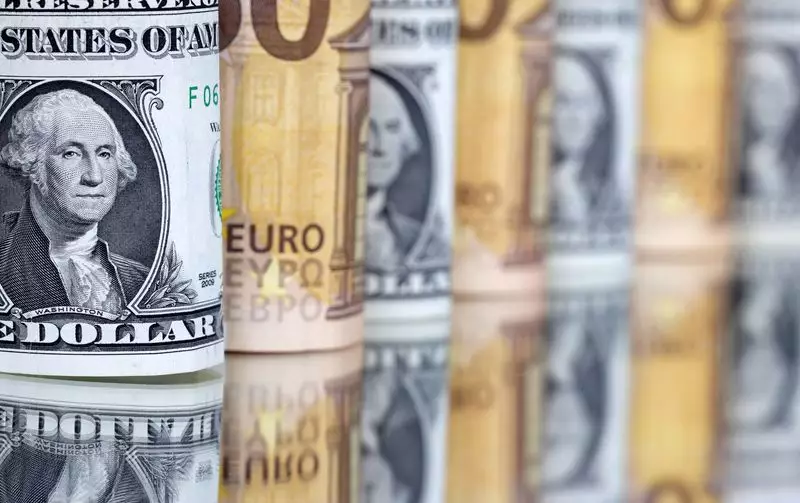The U.S. dollar is facing pressure as it lingers near a multi-week low against major peers following a weak jobs report. Investors are anxiously awaiting Federal Reserve Chair Jerome Powell’s testimony for hints on the future of interest rates. The euro, on the other hand, remains stable due to a hung parliament in France, signaling potential political gridlock but easing fiscal concerns related to extremist victories.
US Dollar Index
The U.S. dollar index, which measures the currency against key rivals like the euro, yen, and sterling, has been stagnant at 104.99, near a 3 1/2-week low. The weak performance of the dollar last week, exacerbated by disappointing jobs data, has increased speculation of a rate cut by the Fed. Traders are now pricing in a 76% chance of a rate cut in September and another cut by December.
Chair Powell’s upcoming testimony before Congress is eagerly anticipated by the market. Analysts are eager to hear how he addresses the balancing act between inflation and the labor market. The communication from Powell could provide valuable insights into the Fed’s future monetary policy decisions. His testimony, coupled with consumer price data later in the week, will be closely watched for clues about the direction of interest rates.
Following the French poll results, market participants have adopted a positive view of political gridlock in France. This scenario, characterized by a lack of decisive policy-making, is seen as a lesser evil compared to radical alternatives. The consensus in the market is that political gridlock will lead to fiscal policy inertia, which is perceived as a stable and less disruptive outcome for the economy.
The euro has remained relatively unchanged at $1.0827, hovering near a four-week high observed on Monday. Similarly, sterling has traded flat at $1.28085 after touching a peak of $1.28455 previously. The yen has stabilized at 160.91 per dollar, rebounding from recent lows.
Political uncertainty, especially in key economies like France, can have a significant impact on currency markets. While the U.S. dollar is under pressure due to weak economic indicators and rate cut speculations, other currencies like the euro and sterling are benefiting from stable political environments. Investors will closely monitor upcoming events, such as Chair Powell’s testimony and economic data releases, for further clarity on the future direction of global currencies.


Leave a Reply